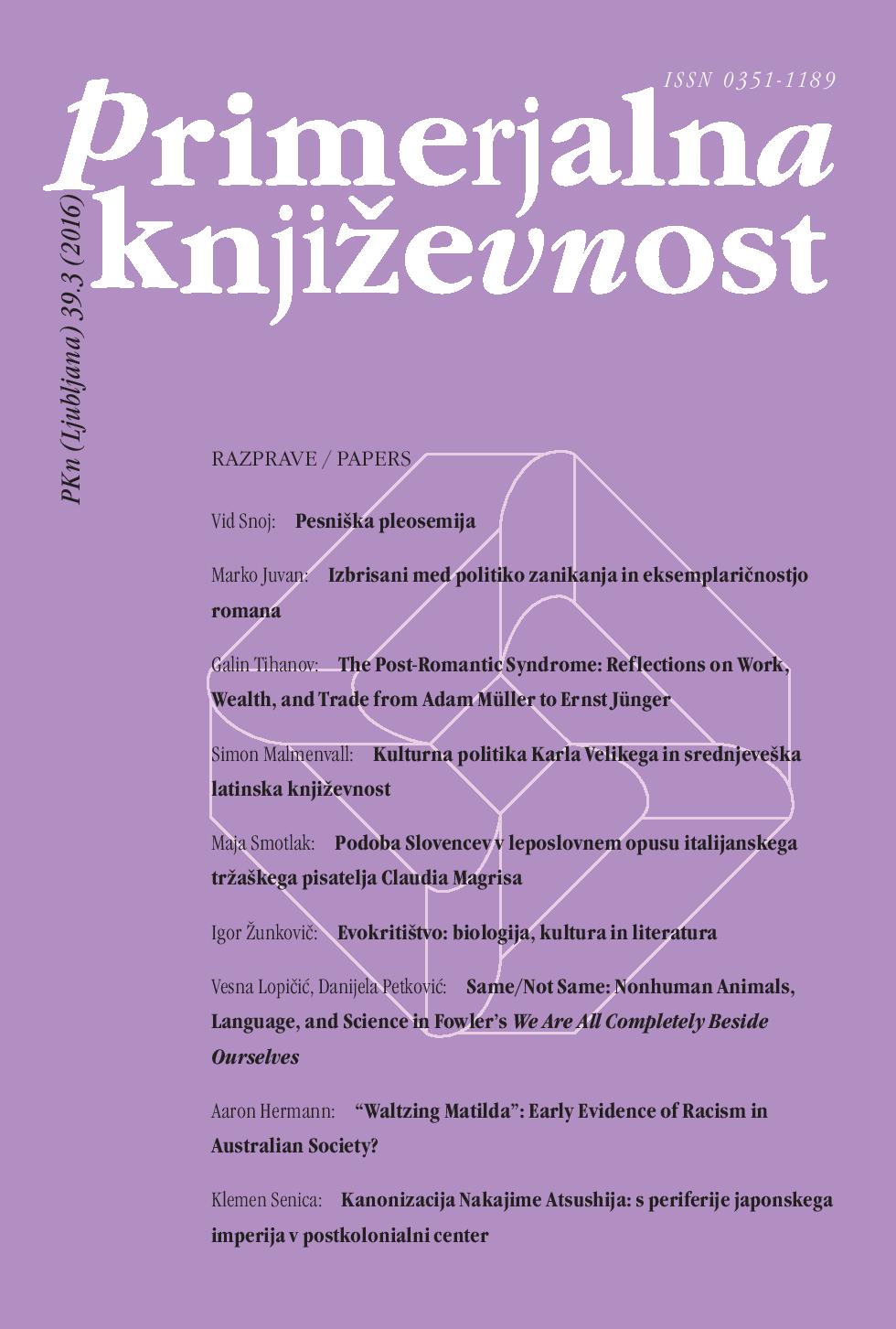Same/Not Same: Nonhuman Animals, Language, and Science in Fowler’s We Are All Completely Beside Ourselves
Keywords:
American literature, human and animal, attitude towards animals, animal rights, humanism, anthropocentrism, violence, language, scienceAbstract
The article discusses Karen Joy Fowler’s 2013 novel We Are All Completely Beside Ourselves, primarily in the context of the growing demands for nonhuman animal rights/liberation. The general thrust of the novel is in keeping with animal rights activism and the animal studies’ critical examination of the human/animal relations.References
Adams, Richard. The Plague Dogs. New York: Fawcett Crest, 1986.
Armstrong, Philip. “The Gaze of Animals.” Theorizing Animals: Re-Thinking Humanimal Relations. Eds. N. Taylor and T. Signal. Leiden and Boston: Brill, 2011: 175–199.
Bekoff, Marc. The Animal Manifesto: Six Reasons for Expanding Our Compassion Footprint. Novato, CA: New World Library, 2010.
Best, Steve. “The Rise of Critical Animal Studies: Putting Theory into Action and Animal Liberation into Higher Education.” Journal for Critical Animal Studies 7.1 (2009): 9–52.
Bisgould, Lesli. “Power and Irony: One Tortured Cat and Many Twisted Angles to Our Moral Schizophrenia about Animals.” Ed. J. Castricano. Animal Subjects: An Ethical Reader in a Posthuman World. Waterloo, Canada: Wilfrid Laurier University Press, 2008: 259–271.
Burns Gunther, Teresa. “An Interview with Karen Joy Fowler.” Bookslut. Oct. 2013. Web. 27 Feb. 2016. http://www.bookslut.com/features/2013_10_020334.php.
Coetzee, John Maxwell. The Lives of Animals. Princeton, NJ: Princeton University Press, 1999.
Derrida, Jacques. The Animal That Therefore I Am (More to Follow). New York: Fordham University Press: 2008.
Fowler, Karen Joy. We Are All Completely Beside Ourselves. London: Serpent’s Tail, 2014.
Francione, Gary L., and Robert Garner. The Animal Rights Debate: Abolition or Regulation? New York: Columbia University Press, 2010.
Haraway, Donna J. When Species Meet. Minneapolis: University of Minnesota Press, 2008.
“No Mooorreee.” Web. 1 Feb. 2016. http://thebestoftumbling.com/post/127268197129/no-mooorreee.
Knight, Arabella. The Costs and Benefits of Animal Experiments. Houndmills, Basingstoke: Palgrave Macmillan, 2011.
Long, William J., Marc Bekoff, and Rupert Sheldrake. How Animals Talk and Other Pleasant Studies of Birds and Beasts. Rochester, Vermont: Bear & Company, 2005.
Lopičić, Vesna. “Literature and the Discourse of Science: Nino Ricci’s Darwinism.” Eds. Vesna Lopičić and Biljana Mišić Ilić. Jezik, književnost, diskurs: književna istraživanja. Niš: Filozofski fakultet u Nišu, 2015: 387–397.
Maiti, Krishanu. “The Animal That Therefore Derrida Is: Status of Animal in Derridean Posthumanism.” Bhatter College Journal of Multidisciplinary Studies. Special Issue on Animal Studies Volume III, 2013. 11 Dec. 2013. Web. 18 Jan. 2015. http://bcjms.bhattercollege.ac.in/theorizing-the-animal-in-derridean-posthumanism/.
Miller, Alice. The Body Never Lies: The Lingering Effects of Hurtful Parenting. New York: W. W. Norton & Company, 2006.
Van Tuyl, Chris, ed. Zoos and Animal Welfare. Farmington Hills: Greenhaven Press, 2009.
Wolfe, Cary, ed. Zoontologies: The Question of the Animal. Minneapolis: University of Minnesota Press, 2003.


